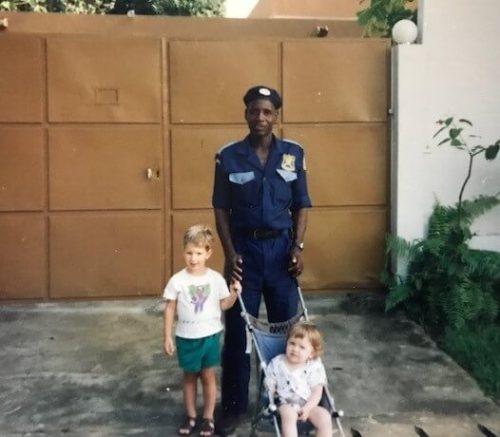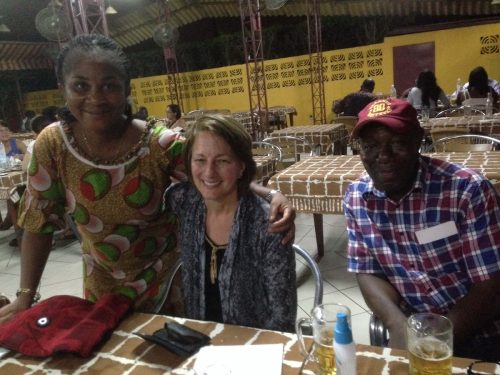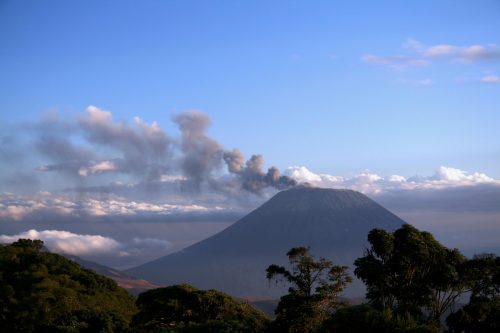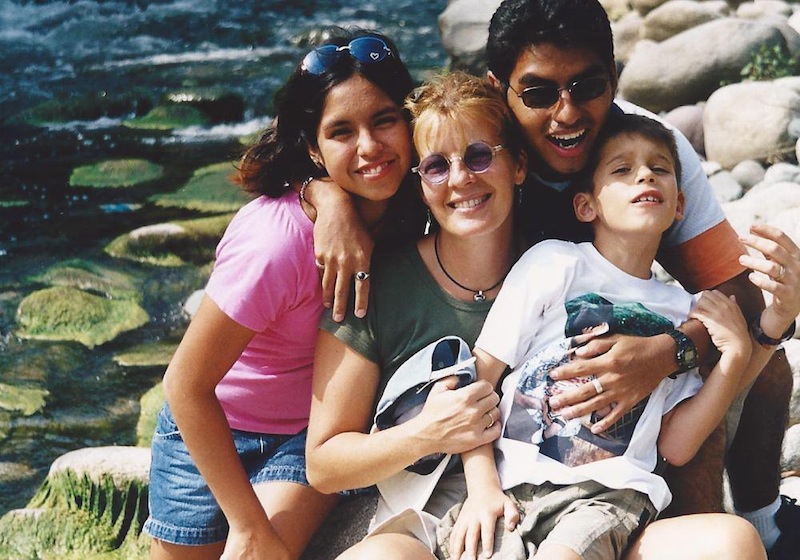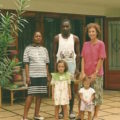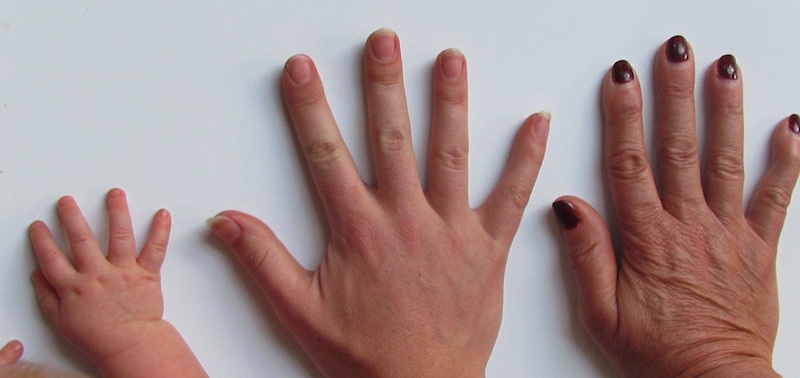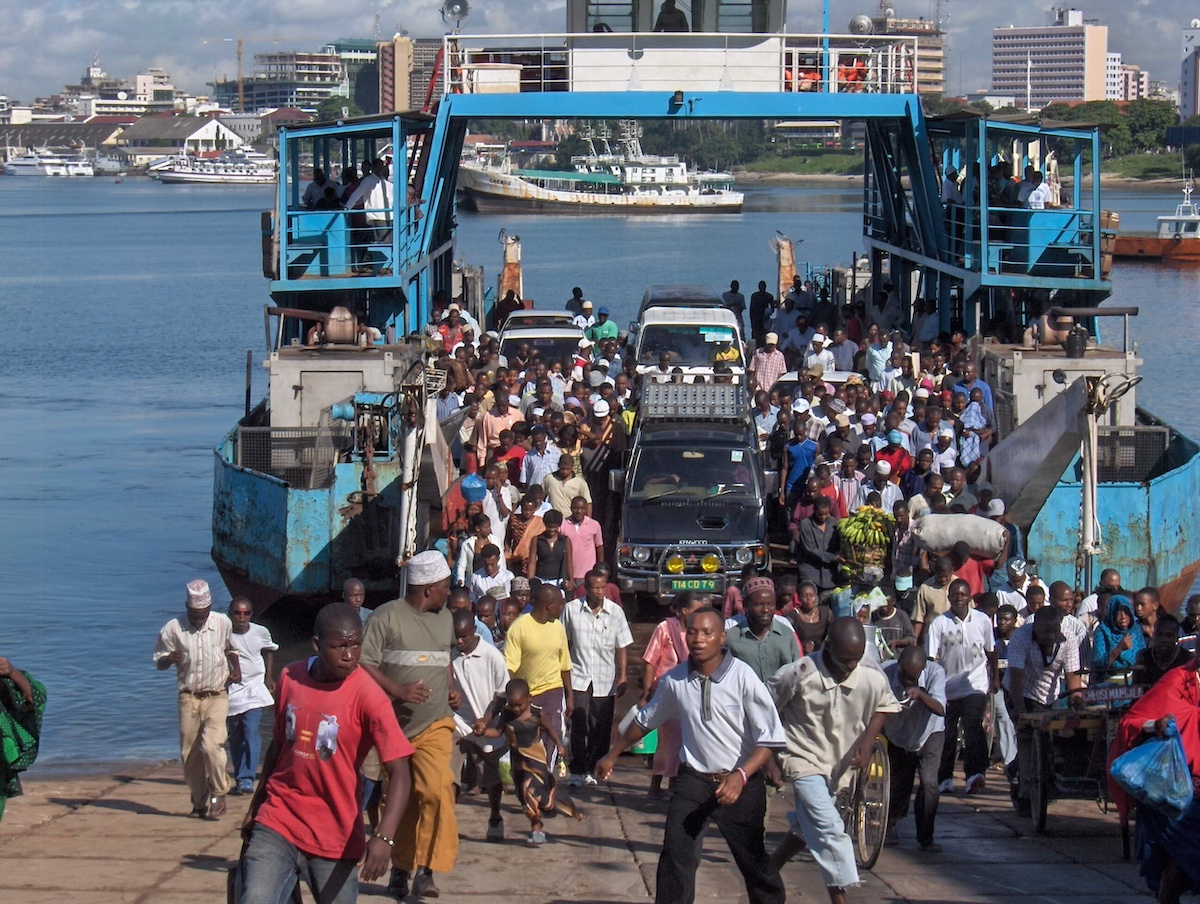
We wholeheartedly thank Terry Repak for this beautiful article on raising global citizens, and how connection with different cultures can make us better people.
Our children were too young to have an opinion about our family’s move to Ivory Coast in the early 1990s. They were four and one when we settled in Abidjan, a high-crime city where AIDS and malaria were the leading causes of death. I agreed to the move because my husband’s work was critically needed—he would direct an HIV/AIDS project for the Centers for Disease Control—and I could work anywhere as a freelance writer.
It took us a few months to adjust to the heat and humidity. We picked up stomach and intestinal ailments like Shigella, and it was hard to get used to Lariam, a medication that would ward off malaria. We eventually felt safe there after we got to know the day and night guard who worked at our house 24/7, a requirement for families attached to the US Embassy.
Connecting with people who loved living in Ivory Coast helped immensely in the adjustment process during our first year. I befriended expats who were married to Ivorians and knew the culture, and we became close to the guards and housekeepers who worked in homes around us. Our children drew chalk animals on the gates and ran around our yard playing hide-and-seek with the guard. These workers provided a window and entrée into a very different world, and our children became fluent in French by interacting with them.
Essayist Pico Iyer wrote that “Home isn’t just a place where we happened to be born. It’s a place where we become ourselves.” That process—of stepping into the persons we would become—began in Ivory Coast. Several people close to us were dying of AIDS, and the kids saw how hard life was for most of the people around us. Yet we felt very much at home there, and the children grew up in a nurturing environment and became attached to the people around us; so much so that they were sad about moving back to the US after six years.
Our kids had to develop even more resilience in the US. It wasn’t easy for our son who — at age 9 — didn’t know the games American boys played, the music they listened to, or the shows they watched. Eventually he joined a scout troop with neighborhood kids, and our daughter did dance classes and sleepovers with friends. After five years in Atlanta, they finally fit in.
When my husband was interested in applying for a job in Tanzania in 2005, we gave our children a choice this time. Because they had good memories of growing up in Ivory Coast, both agreed to relocate again. I, too, was happy about the move, and I wasn’t as apprehensive as I had been when we moved to west Africa ten years earlier.
Adapting to our new environs was much easier in Dar es Salaam than it had been in Ivory Coast. Our house was located on a narrow peninsula bordered on both sides by the Indian Ocean. We could walk the unpaved streets to the beach in five minutes and get a view of the placid bay with distant hills on the far side of it. Because it was always warm, we could swim whenever the tide came in.
Within two hours of Dar, there were game parks with exotic trees and birds as well as land animals; and four hours further we could drive to mountains like Kilimanjaro and Meru. Knowing that our time in Tanzania was limited, we did numerous treks and visits to distant islands as a family. Our son climbed Kilimanjaro (just as I did) with a school group, and our daughter got her diving certification with her classmates in Zanzibar.
Connecting with the people around us was just as essential in Tanzania as it had been in Ivory Coast. The children thrived at the international school where there were few cliques because of the annual turnover of students. They did community service projects for the school, and they interacted with our guard and local workers on a daily basis. I joined women’s groups, tutored local elementary students in English, and wrote a monthly column for a magazine.
None of us wanted to leave Tanzania at the end of three years; but our son was going off to college and we wanted to be closer to our parents as their health was failing. After living in east and west Africa for a decade, all of us were profoundly changed as were our perspectives on the world. The most meaningful aspects of those years were the connections we made with people of other cultures; encounters that helped us become more tolerant, curious and compassionate individuals.
After a few years, when our children were on their own, my husband was offered a job at the World Health Organization and I agreed to go, knowing that we’d be able to hike, bike and swim in the lakes and mountains around Geneva. It was a harder post for me because I missed having our children with us and found fewer opportunities to do volunteer work and interact with people of different backgrounds.
After working in five US cities in her 20s, our daughter moved to Paris when we were living in Geneva and soon found work. A year later she moved to Luxembourg for a better job and then to London where she met her British partner and had two children with him. She prefers the work-life balance there and — I suspect — the lure of the foreign. Her ability to navigate other cultures enables her to recruit and manage employees at international tech companies.
Our son, too, travels the world with ease and openness, his French still fluent, and he hopes to return to Tanzania and reconnect with old friends. With broad perspectives after living in other countries, he has no trouble relating to people who hold opposing political views.
As a parent, I’ve had to watch my children settle farther from us than I’d like. Yet it’s a great consolation to know that in this interconnected but divided world, our kids are resilient global citizens with genuine interest in people of other cultures.
Terry Repak is a freelance writer whose new memoir, Circling Home: What I Learned By Living Elsewhere, was published in September 2023 (available on Amazon, Kindle, Audible and Spotify). She lives in Seattle and teaches English to foreign language learners (ELL).
November 2023
Photos: ©TerryRepak

